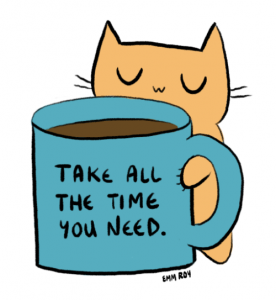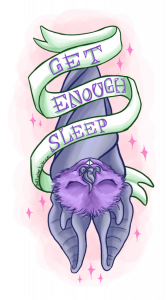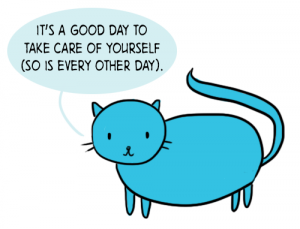As someone who finds self care really tough to do, but who obviously needs a lot of it, I’m a loud advocate. But it’s tough to fight the voice that tells me I’m taking the easy way out. So how do we tell the difference between self care and selfishness?
Recently, I told my pysch I felt selfish because I had withdrawn from a lot of social media. I wasn’t able to cope with the endless barrage of upsetting or infuriating information, or being a bystander on other people’s lives. Unfortunately, I’m a really reactionary person. I see something that makes me angry, and I experience the full gamut of physical responses. Ditto anxiety or misery. It’s really hard not to feel a huge amount of empathy when I see my friends experiencing tough things. And I don’t ever want anyone to feel like they can’t share what’s happening for them – so it was best to take myself out of the equation. 
But, I asked the counsellor, didn’t that make me selfish? Isn’t it self-centered to put my own needs first? Doesn’t that make me both a terrible citizen of the world, and a terrible friend?
She disagreed. She said what I was exhibiting was what she calls “enlightened self interest.” She reminded me that I’m no good to anyone – myself, my friends, or the vulnerable people I want to help – if I’m unwell.
My frustratingly sensitive system means that emotional stress creates physical distress, and vice versa. Any upset I experience nearly always translates into misery and deep fatigue.
As someone who has always experienced emotions to this depth, I find it very hard to balance my desire to be a good friend and a good person, and to be an informed person who acts on the injustices they see, with my inarguable need to rest. I want desperately to write so much more than I do, to volunteer so much more, to campaign and advocate so much more. To do something that makes a difference, even if it’s a tiny one. It’s incredibly frustrating to have to accept that right now, that’s just not possible. It may never be.
I didn’t really like the term “enlightened self interest,” for my own personal use. Enlightened sounded a bit new-agey, and self-interest sounded the same as selfish.
When making difficult decisions, I’ve been taught by various counsellors to use a venn diagram that has Emotions in one circle, Reason in the other, and Wisdom in the overlapping middle section. Making decisions that take all three things into account in a balanced way is calling “using my wise mind.”
The phrase I eventually came up with was “Compassionate self preservation.”
 When I make a decision using my wise mind about taking myself away from triggering media, I’m employing compassionate self preservation.
When I make a decision using my wise mind about taking myself away from triggering media, I’m employing compassionate self preservation.
I chose the word compassionate because I wanted to demonstrate that this decision is done in a way that is compassionate to both myself and others. I don’t withdraw immediately with no explanation, causing others to worry. I don’t necessarily ruthlessly put my needs first. I try to be compassionate about employing this action.
And I chose the term self preservation because it has a degree of inarguability to it. This is something I absolute need to do to preserve and protect myself. I’m not doing it lightly or because I even necessarily want to. I’m doing it because it is what has to happen in order to take care of my mental and physical health. The only other option is to sink deeper into depression caused by my own sense of helplessness and despair with the world. That helps no one.
Probably these nuances won’t mean a lot to many people. From the outside, an act of withdrawal or of putting one’s needs first may still be seen as selfishness. But in your heart, you will know what you need to do to take care of yourself.
No one can be all things, to all people, all of the time. Especially people who are doing jobs that require a lot from them emotionally – advocates, campaigners, volunteers. You are your most valuable resource. Just like any other asset, you must protect you.
Everyone will have different ways in which they practice self-care and self-preservation. Yours might not look like other people’s. It’s good to have a list on hand for when you need it.
And don’t be afraid to click into compassionate self-preservation, even if you feel like you’re not at breaking point yet – especially if you’re not at breaking point yet. This should happen before then.
Back away from the Stuff comments. Go snuggle the cat. Eat some ice cream. Read a book. Do gymnastics. Hide your child’s recorder. Whatever it is, it’s ok to do it.
It’s not selfish. It’s taking care of yourself. There’s no other you but you. And you’re important.


Thank you so much Sarah. This post came at a really great time for me. The term compassionate self care sits so much nicer with me. I also wanted to say it can be hard to take those compassionate self preservation steps and it’s brave and awesome when you (or anyone does). <3
Thank you Fran. Yeah, it is definitely hard. I’ve seen some people say that self care is a “radical” step, and I think, especially for women, it can be.
Thanks Sarah for sharing this!
Completely resonates with how I have experienced anger, sadness, fatigue & collapse cycles, within the progression of symptoms during CFS.
I also completely relate to what you’re saying about sensitivity. Always astounds me when people are not shocked to the core & feeling physically unwell, after witnessing/hearing about some of the traumatising abuse that occurs in the world.
Sometimes I wonder if the ‘sensitives’ are here to be the ethical litmus paper for society – we physically sicken, & that indicates the sickness in society in some aspecy – like an ethical ‘canary in a cage’.
I’m an ally for many LGBTI+ groups, as a cis feminist. It makes me appreciate those who are allies for the multiple presentaions of disability, because our agency is disrupted & sometimes we just need the advocacy of ‘helper’ advocates & the peer support of allies.
I have times when I back off writing, too, because the mental effort of guaging ‘the readership’ & framing the discourse is just too much. Hence my sparse blogging of recent years.
“back away from Stuff comments” should be the number-1 rule in How to Do Life guidebooks handed out at birth.